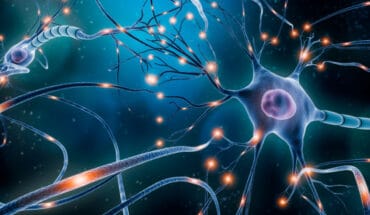What is insomnia?
You have insomnia if you regularly:
- find it hard to go to sleep
- wake up several times during the night
- lie awake at night
- wake up early and cannot go back to sleep
- still feel tired after waking up
- find it hard to nap during the day even though you feel tired
- feel tired and irritable during the day
- find it difficult to concentrate during the day because of tiredness
Many people experience these symptoms for months, sometimes years.
How much sleep do you need?
Everyone needs different amounts of sleep. On average, we need:
- adults: 7 to 9 hours
- children: 9 to 13 hours
- toddlers and babies: 12 to 17 hours
You probably do not get enough sleep if you’re constantly tired during the day.
Do you have a sleep problem?
You can try the NHS’s sleep checker here to determine if you may have insomnia. Most people experience problems with sleep in their life. In fact, it’s thought that a third of people experience episodes of insomnia at some point.
What causes insomnia?
Insomnia can be triggered by physical and psychological conditions (such as depression or anxiety) or a combination of both. The most common causes are:
- stress, anxiety or depression
- noise
- new baby
- a room that’s too hot or cold
- uncomfortable beds
- alcohol, caffeine or nicotine
- recreational drugs like cocaine or ecstasy
- jet lag
- shift work
- working too late into the evening and being unable to switch off
- worries, excitement and things playing on your mind
- pregnancy
- needing to get up in the night to go to the loo
- hormonal changes from menopause
- Some foods
- Underlying medical conditions
- Side effects from some medications
How you can treat insomnia yourself?
Insomnia can often be helped by changing your sleeping habits.
Do:
- go to bed and wake up at the same time every day – only go to bed when you feel tired
- relax at least 1 hour before bed – for example, take a bath or read a book
- make sure your bedroom is dark and quiet – use thick curtains, blinds, an eye mask or ear plugs
- exercise regularly during the day
- make sure your mattress, pillows and covers are comfortable
- Often a milky drink before bedtime can help – or getting one if you can’t sleep
Do not:
- smoke or drink alcohol, tea or coffee at least 6 hours before going to bed
- eat a big meal late at night
- exercise at least 4 hours before bed
- watch television or use devices right before going to bed – the bright light makes you more awake and working late into the evening can leave you feeling pre-occupied
- nap during the day
- drive when you feel sleepy
- sleep in after a bad night’s sleep – stick to your regular sleeping hours instead
Technology is a constant presence in many people’s lives today, be it for work or pleasure. It can seriously impact your sleep. Dr Rangan Chatterjee, a GP based in Greater Manchester, offers the science behind this. He says: ‘It’s not just that scrolling through content and surfing online makes your brain go into overdrive just when it needs to be closing down. Blue wavelength light from computers, tablets and iphones is also a major disruptor of our bodies’ circadian rhythms because it reduces the production of the sleep hormone, melatonin.’ He suggests trying to follow the ‘No Tech 90’ rule. Don’t use digital devices 90 minutes before planning to go to sleep.
Should I see a doctor?
Insomnia should never be treated in A&E. Your pharmacist may be able to help. You can get herbal medication and various mild sleeping sedatives from a pharmacy. But they will not get rid of your insomnia and could have many side effects. Sleeping pills can often make you drowsy the next day. You might find it hard to get things done. You should not drive the day after taking them. See a GP if:
- changing your sleeping habits has not worked
- you have had trouble sleeping for a prolonged amount of time
- your insomnia is affecting your daily life in a way that makes it hard for you to cope
A GP will try to find out what’s causing your insomnia so you get the right treatment. A GP can carry out an evaluation including a physical exam and a sleep history. They will first look to exclude any common medical conditions that might be preventing your sleep. Keeping a sleep diary for one or two weeks can be invaluable. Sometimes they may refer you to a specialist sleep centre. Sometimes you’ll be referred to a therapist for cognitive behavioural therapy (CBT). This can help you change the thoughts and behaviours that keep you from sleeping. GPs now rarely prescribe sleeping pills to treat insomnia. Sleeping pills can have serious side effects and you can become dependent on them. Sleeping pills are only prescribed for a few days, or weeks at the most, if:
- your insomnia is very bad
- other treatments have not worked
- What is a seizure? - 13th March 2025
- Febrile Convulsions and Seizures in Children - 13th March 2025
- Why women are less likely to receive CPR or survive cardiac arrest - 6th March 2025







